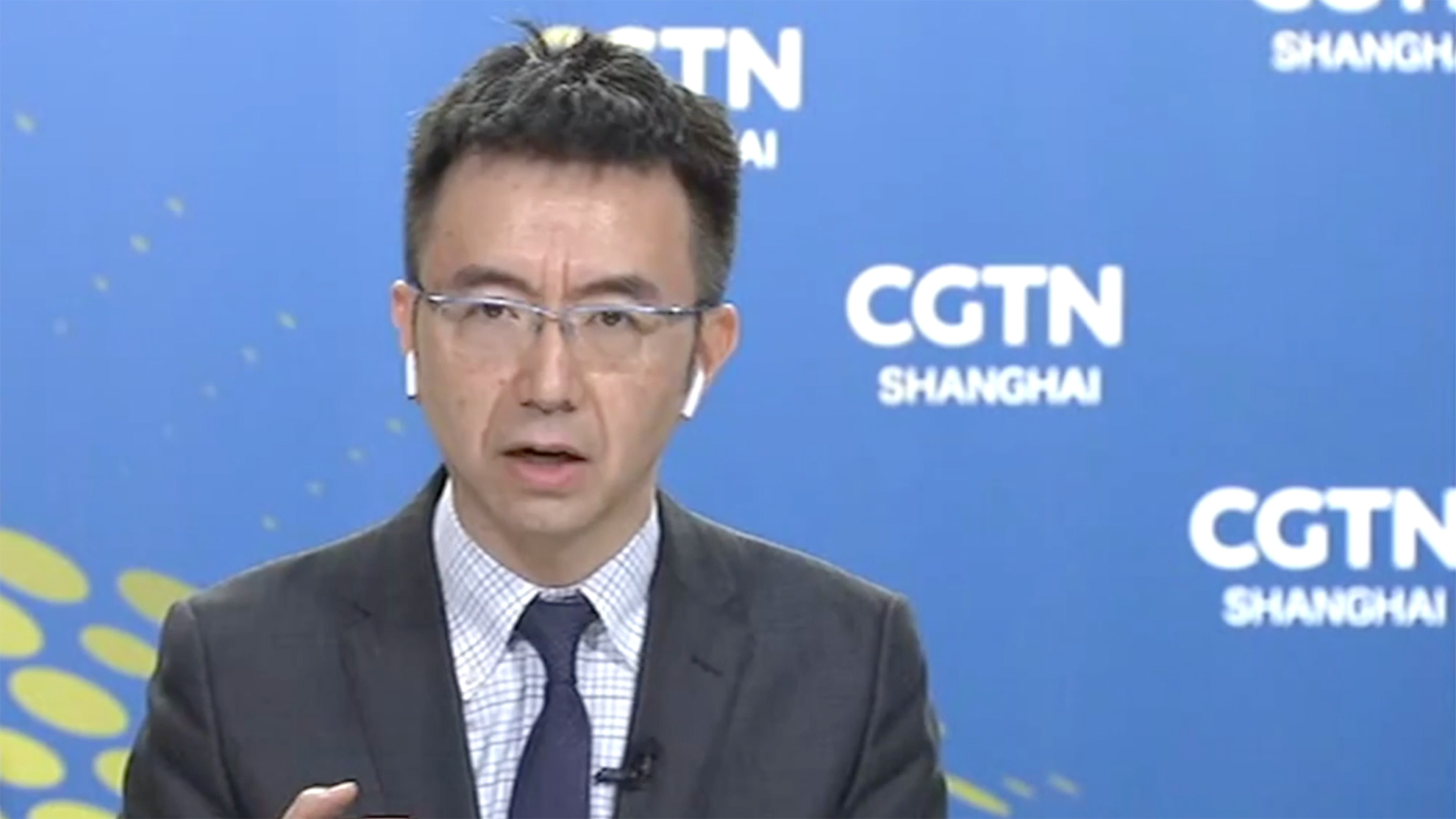01:23

Financial technology could promote the opening-up, innovation, and development of a country's financial market. The stock prices of companies involved in blockchain soared after the Chinese leadership decided to strengthen investment in the area. Why should China develop such innovation and how will blockchain affect our daily life?
Yao Yang, director of the China Center for Economic Research and the National School of Development at Peking University, stressed the significance of developing blockchain technology in China, especially since China has already made rapid progress in technology, such as in artificial intelligence. And blockchain can be used to assist the possible issuance of the digital currency released by Central bank.
But what exactly is blockchain?
Paul Gillis, professor of practice at Peking University, said that it was invented to facilitate the creation of bitcoin twenty years ago, it is also called a "distributed ledger" where transactions are recorded. So, everyone has a complete record of what has happened and the previous record can't be changed.
He believes this is a key the pillar of digital currency because once it's transferred it can't be undone and modify. Besides, blockchain can be applied to many things, one application that has been discussed widely is "to avoid counterfeiting."
00:57

Professor Jun Qian, executive dean of Fanhai International School of Finance at Fudan University, pointed out that it matters who issues the digital currency. In China, it's the central bank that is planning to issue the digital currency, while in the U.S., it's the private company – Facebook.
While there are benefits to having the private sector lead in this, from the perspective of the financial system and macro economic policy, having the Central bank issue it is perhaps better as it can combine the benefits of digital currency, while internalizing the issuance and the amount of digital currency in the existing currency system.
"One of the advantages of digital currency could be in cross-border e-commerce, because a company that would sell worldwide could price all their goods in the digital currency, so the prices are the same everywhere in the world, and the transactions will become very transparent," said Paul Gillis, professor of practice at Peking University.
He added that it will possibly lower transaction costs, as blockchain can effectively replace the "middle man who now gets involved in financial transactions." For instance, Alipay and WeChat pay are prevalent online payment vendors in China. But now, with digital currency and blockchain, that transaction cost may be eliminated.
02:27

However, Professor Qian clarified the differences between electronic payments and the digital currency; the former facilitates clearances of transactions, while he believed the latter can be exchanged for all kinds of services and goods within a country. He stressed that digital currency is not just a payment system to facilitate trade and transactions.
For cross-border and daily transactions, "we need more than simply technology, this cryptocurrency, once you are doing large scale cross-border transactions, there needs to be some coordination between institutions, between governments", said Qian. Moreover, he believed digital currency is the one that can serve the same function as the currency we are using.
Dialogue With Yang Rui is a prime time daily English talk show on CGTN. The 30-minute talk show covers a wide range of domestic and international topics, providing a balanced and critical perspective on current affairs and analysis within the framework of cross-cultural and multi-disciplinary comparisons.
Schedule: Monday-Sunday
Time (GMT): 0330, 1130, 1930
(If you want to contribute and have specific expertise, please contact us at opinions@cgtn.com)